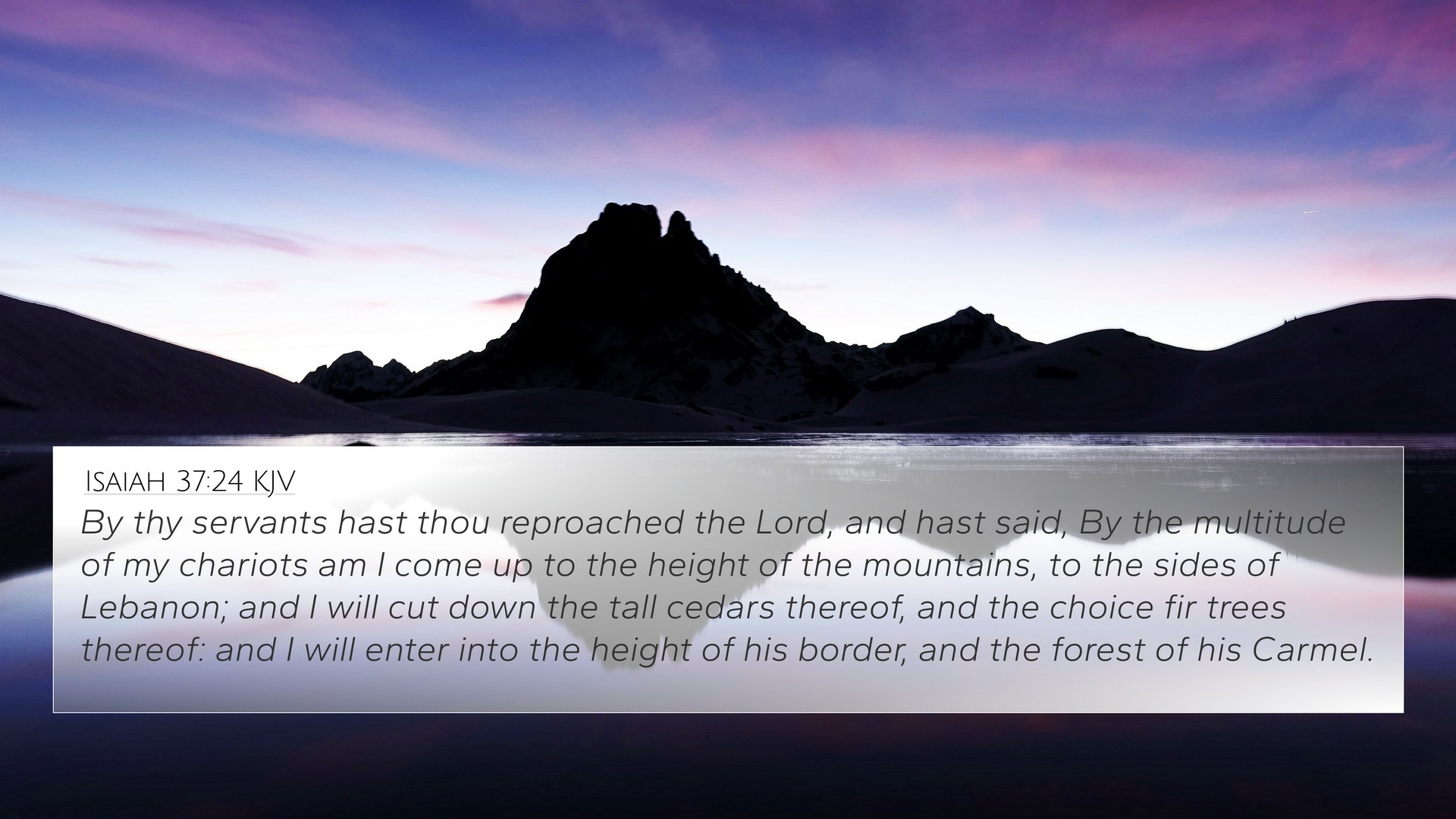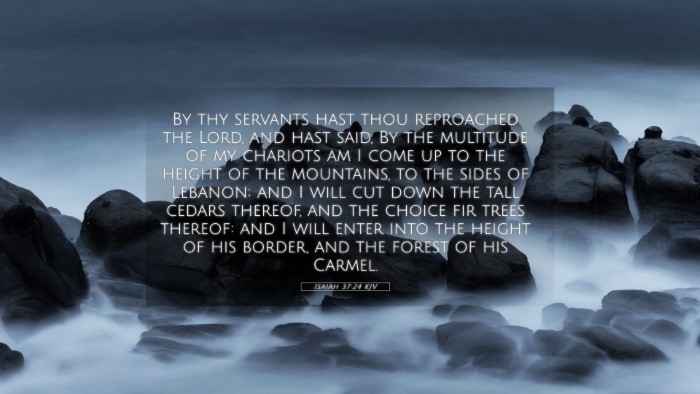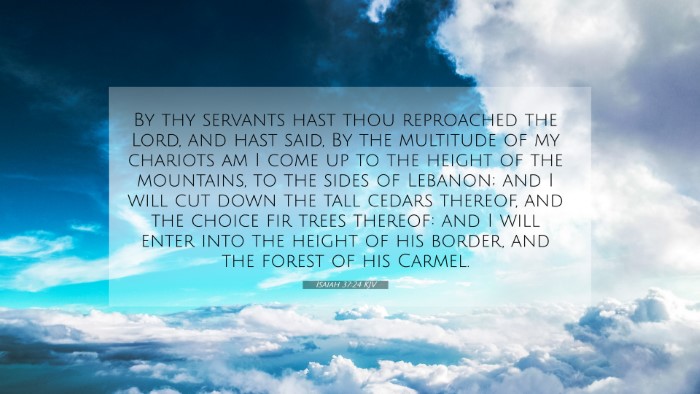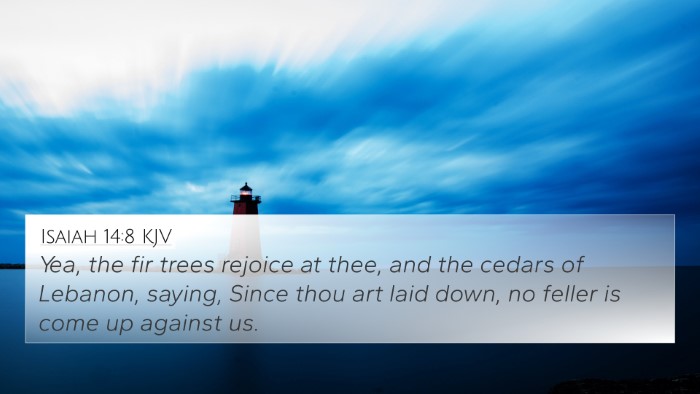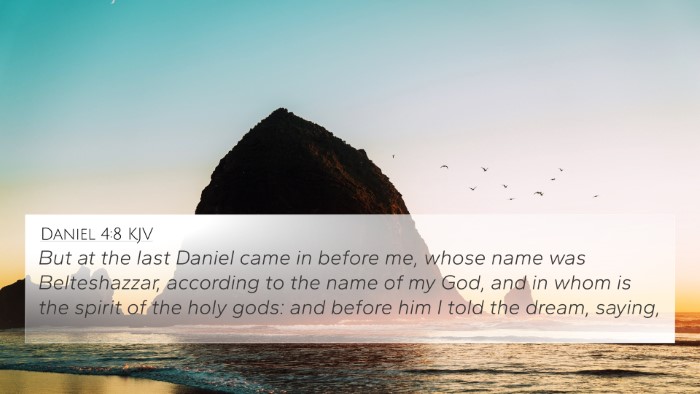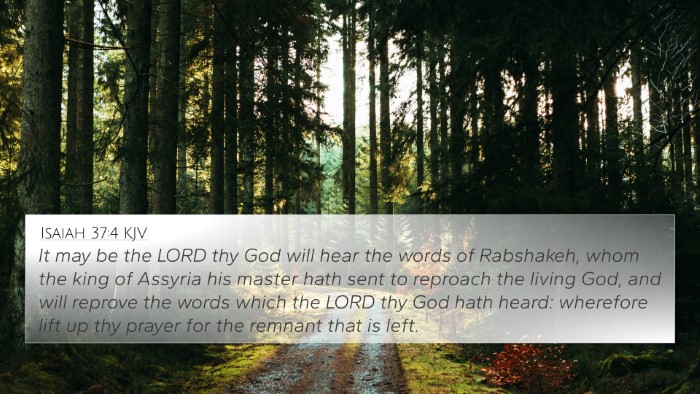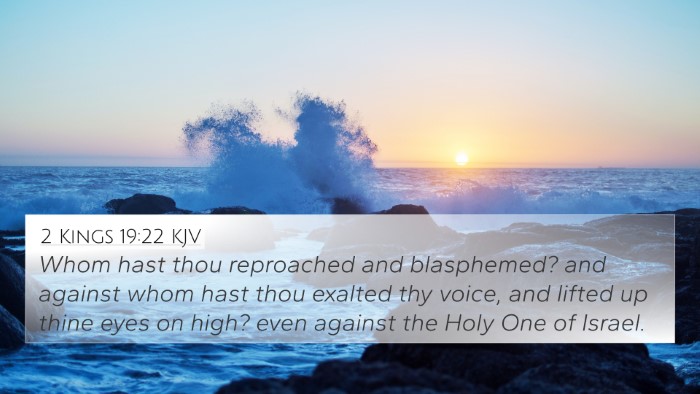Bible Verse Meaning of Isaiah 37:24
Isaiah 37:24 states: "By your servants you have reproached the Lord, and you have said: ‘With my many chariots I have ascended the heights of the mountains, the farthest reaches of Lebanon; I felled its tallest cedars, its choicest cypress trees; I went to its highest peak, to its thickest forest.’" This verse comes from a context wherein the Assyrian king Sennacherib boasts about his military prowess and the conquests he has achieved.
Contextual Background
This passage captures the hubris of Sennacherib, as he attributes his successes to his own strength and strategy. This moment is pivotal in understanding the pride and arrogance that often precedes divine judgment. The public domain commentaries from Matthew Henry, Albert Barnes, and Adam Clarke provide valuable insights into the deeper meaning of this verse.
Commentary Insights
-
Matthew Henry:
Matthew Henry observes that Sennacherib's arrogance is a direct challenge to God. Henry emphasizes the futility of pride when confronting divine authority. He suggests that the way Sennacherib boasts about his conquests illustrates how the enemies of God often misunderstand their place in the grand narrative of providence.
-
Albert Barnes:
Barnes focuses on the imagery used by Sennacherib to depict his military achievements. He notes that the mention of Lebanon’s mountains and cedars represents the might of Sennacherib, but contrasts this with God's sovereignty. Barnes argues that such earthly power pales in comparison to the divine strength demonstrated throughout Israel's history.
-
Adam Clarke:
Adam Clarke notes the specific mention of “chariots” and “mountains,” suggesting that Sennacherib’s reliance on military might blinds him to the reality of God’s power. Clarke also points out that this verse serves as a reminder of the transitory nature of earthly might and the eventual triumph of divine will.
Key Themes and Takeaways
The verse reinforces several critical themes within biblical texts:
- Pride and Arrogance: The danger of self-reliance and pride in one's achievements.
- Divine Sovereignty: God is ultimately in control, regardless of human ambition.
- Consequences of Blasphemy: Speaking against God leads to severe consequences, exemplified in the narrative that follows.
- Human vs. Divine Strength: The comparison between earthly conquests and spiritual authority highlights the limitations of human power.
- Historical Context: Understanding the Assyrian threat provides insight into Israel's reliance on God during times of crisis.
Cross-References to Isaiah 37:24
Isaiah 37:24 connects with several other biblical passages, illustrating a web of biblical cross-references that enrich our understanding:
- Isaiah 10:12: Discusses the Assyrian king’s arrogance and God's forthcoming judgment.
- 2 Chronicles 32:15-19: Relates to Sennacherib's blasphemy against God.
- Psalms 2:1-6: Describes the futility of the nations' resistance against God's authority.
- Isaiah 37:29: God’s declaration to Sennacherib regarding his arrogance.
- Habakkuk 2:4: "The righteous shall live by faith," contrasting dependence on human strength.
- Jeremiah 9:23-24: Warns against boasting in wisdom, might, or riches.
- Proverbs 16:18: "Pride goes before destruction," further illustrating the consequences of arrogance.
- Isaiah 31:1: Echoes the importance of trust in the Lord over military strength.
- Micah 5:10-11: Foresees a time when God will break the pride of human power.
- Revelation 19:19: Reflects the ultimate defeat of earthly rulers who oppose God.
Application and Reflection
As readers engage with Isaiah 37:24, it challenges us to examine our own lives concerning pride and reliance on human strength. The broader narrative underscores the importance of faith and dependence on God, especially in the face of seemingly insurmountable challenges.
Conclusion
Understanding Isaiah 37:24 through the lens of various commentaries provides a multifaceted view of its meaning and implications. It serves as a potent reminder of God's ultimate authority and the dangers of human arrogance. For those studying the connections between Bible verses, tools for cross-referencing, and examining themes throughout scripture, Isaiah 37:24 is a profound text that encourages deeper exploration and reflection.
